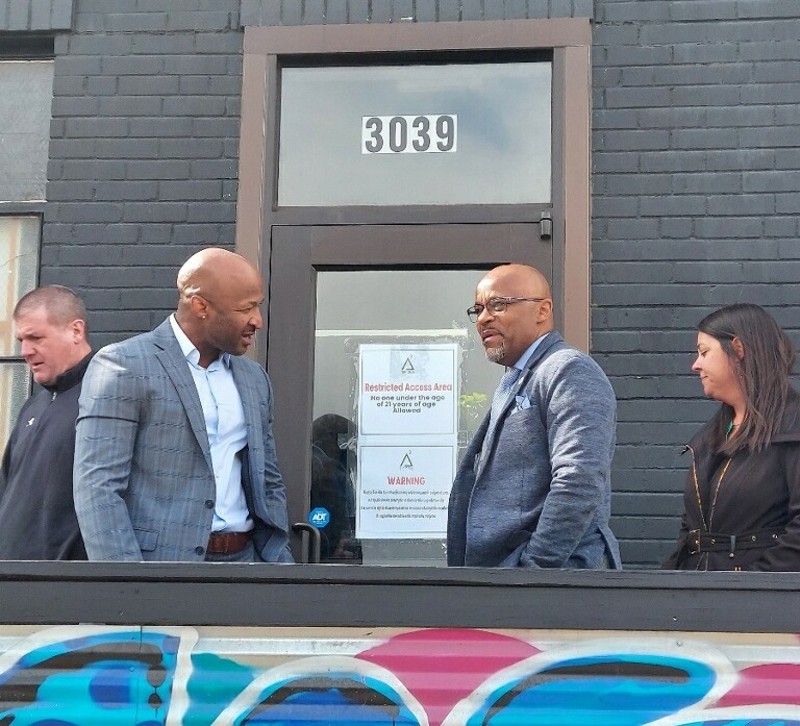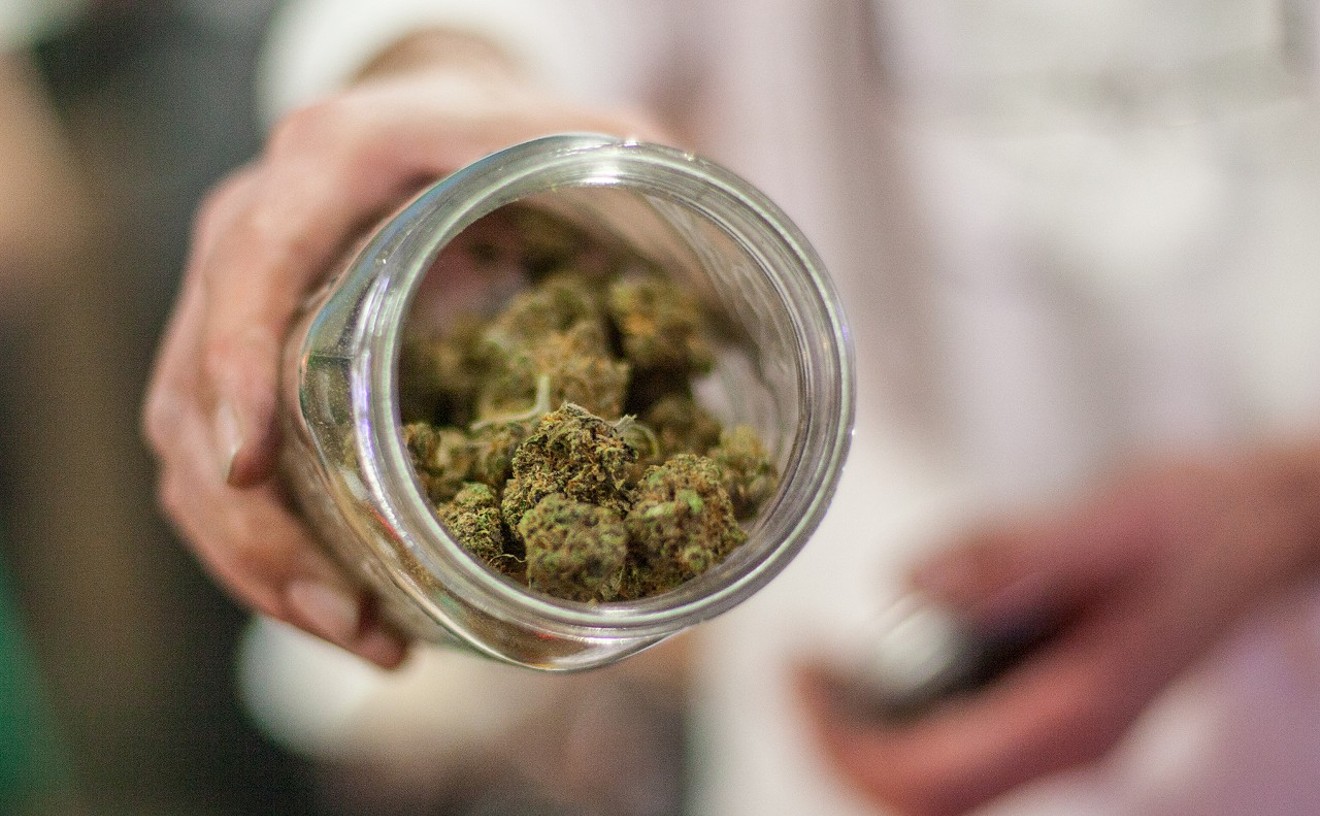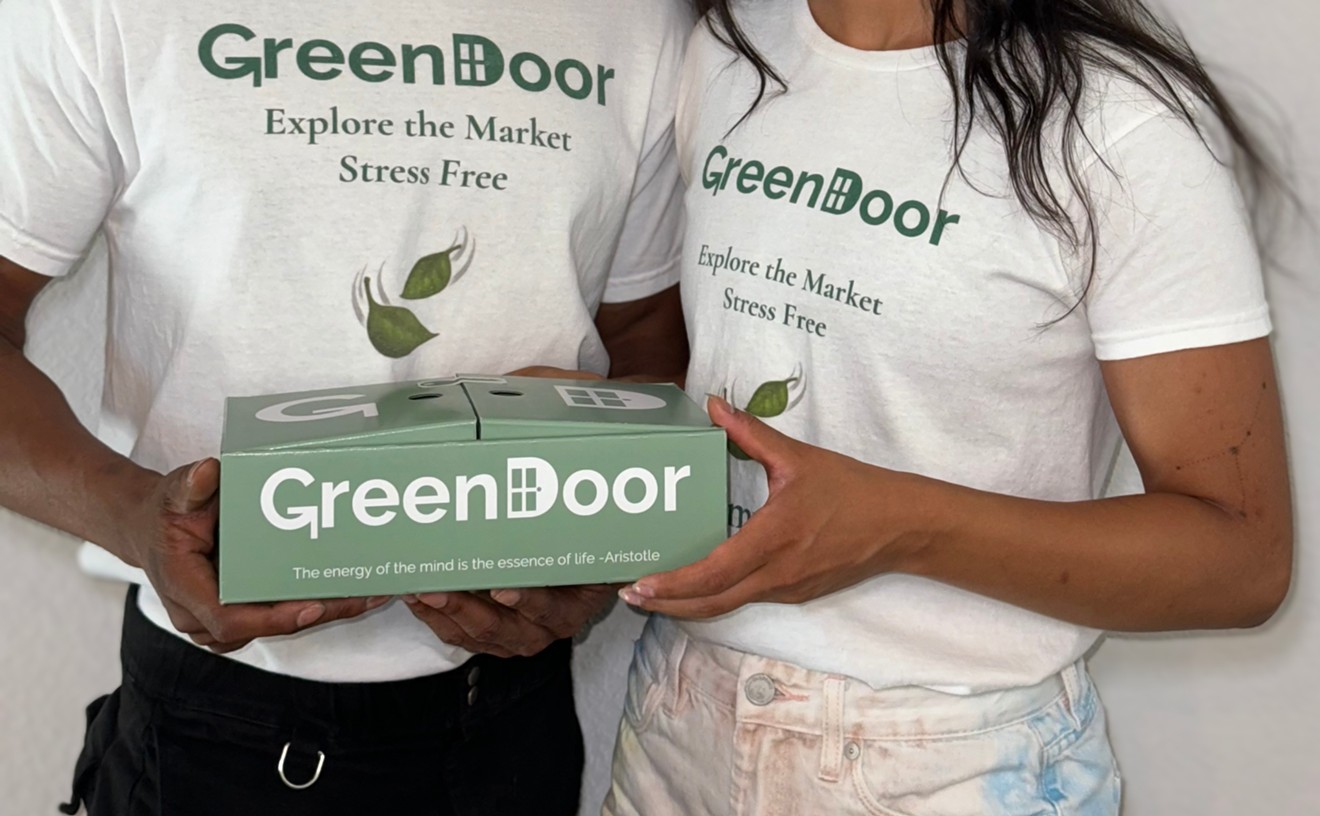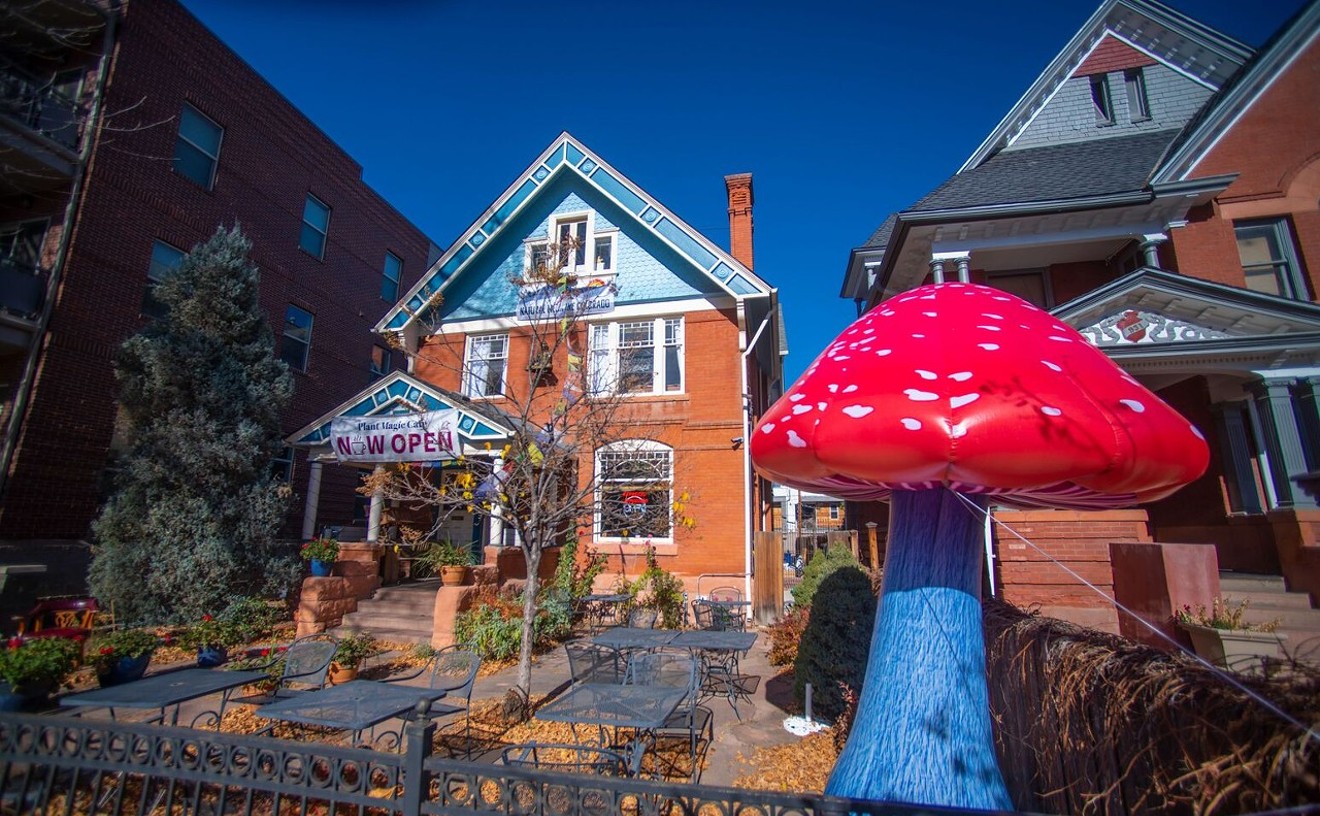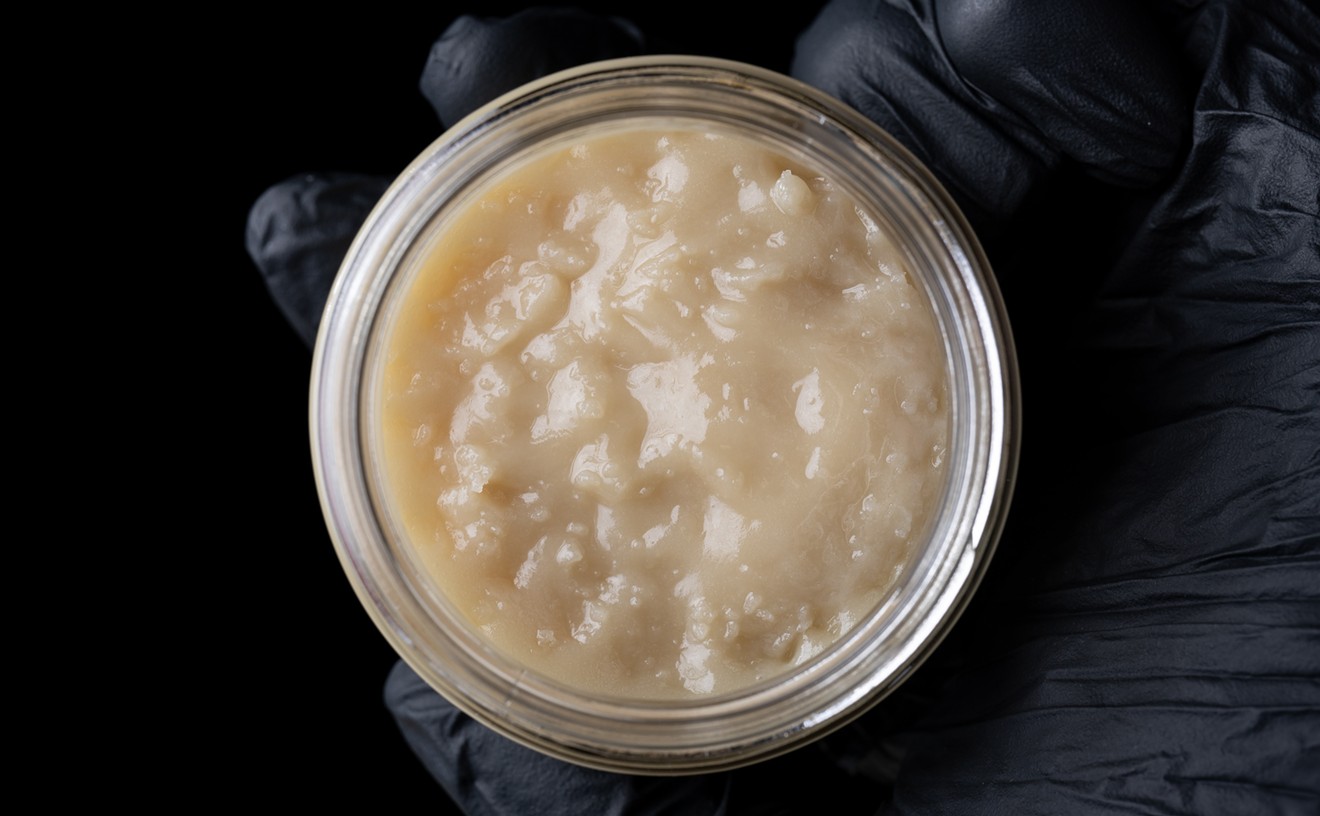Tetra Lounge was poised to make history on March 30, 2022. After operating as a private club, the marijuana lounge was already licensed by the state and had just been approved by the City of Denver for the social hospitality program. Governor Jared Polis and Mayor Michael Hancock attended a ceremony organized by Polis's office to celebrate the spot, with both politicians eager to praise owner Dewayne Benjamin as a Black man blazing new paths in Colorado's unfounded marijuana hospitality space.
"I'm very excited to be at the opening of Colorado's newest business," Polis said to the crowd at 3039 Walnut Street, boasting that Denver had "the nation's first" venue licensed for indoor pot smoking at the state and local levels. Hancock said he was "proud" of Tetra's growth, and hailed the venue as a shiny new example of the city's social equity efforts in legal marijuana.
But 4/20 came and went, and Tetra wasn't open. So did the summer, fall and winter. Now, as another round of the unofficial marijuana holiday nears, Benjamin says that Tetra still won't be open this week, not even after trying to pivot to an outdoor smoking model.
"Every time I do what they ask, something changes. They're trying to put me out of business," Benjamin says of Denver licensing and building department officials who have yet to give him the official permits to open. "They're using this hospitality license to force me to close and force me out."
Tetra first opened in 2018 as a private marijuana lounge, allowing people 21 and over to sign up as members before entering. Operating in this legal gray area that was occasionally disputed by the city, but Tetra managed to remain open for the better part of four years as long as members brought their own marijuana and no pot sales took place. Benjamin decided to apply for a city permit in 2021 so that he could open to the public, and he says he hasn't operated Tetra as a private club since last year, for fear of hurting his application's chances.
Since Tetra's marijuana hospitality application was approved by Denver's Department of Excise & Licenses over a year ago, three other businesses have also been approved for indoor marijuana smoking, but none of them have received local licenses to operate, much less opened. That's because being approved for marijuana consumption and actually obtaining a license are two different things, and a relatively new ventilation requirement for marijuana hospitality establishments has become a big hurdle for applicants who thought they had the green light.
According to Benjamin, the Denver Community Planning & Development department quietly adopted ventilation requirements in 2021 that mirror International Building Code standards. These standards place a higher requirement on clean air, even inside businesses that are exempt from the Colorado Clean Indoor Air Act, like marijuana hospitality establishments. Benjamin and the owners of Colorado Cannabis Tours and the Patterson Inn Hotel, two more businesses approved for indoor pot smoking, say that installing such an HVAC system would cost well over six figures, but they weren't made aware of the cost when they were approved for the social hospitality plan.
"Under the code I'm being forced to operate under, indoor vaping wouldn't be allowed without over $250,000 in ventilation upgrades. Because of that, I've had to transition to outdoor use, but there have been issues there, too," Benjamin says. "I've spent $50,000 on mechanical and building plans that they required, only for them to change what they wanted and tell me to do it all over again."
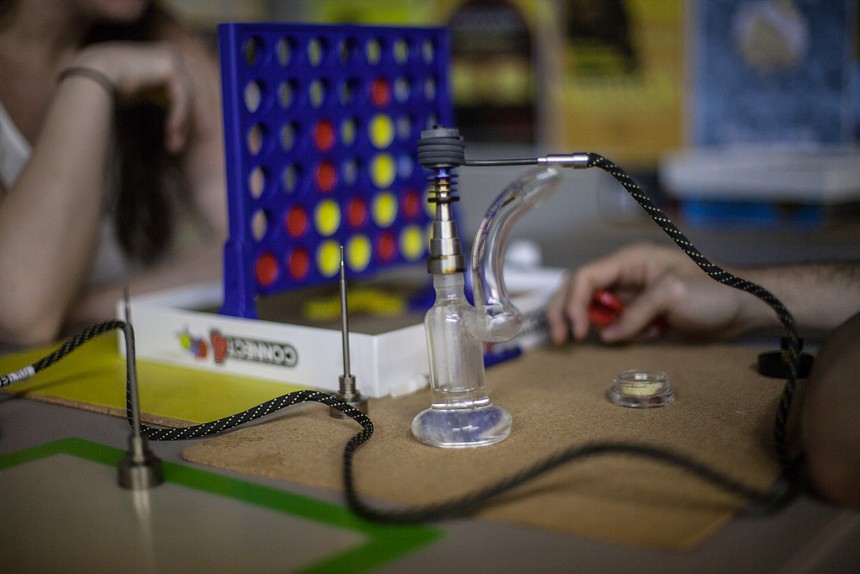
The Coffee Joint allows guests to consume cannabis indoors, but only via electronic vaporizers and dab rigs.
Jacqueline Collines
"There is nothing in local law that would allow us to legacy a business that was not licensed," Escudero says. "We're really hoping Dewayne can cross the finish line successfully and provide a place where people can consume cannabis legally outside of their homes. That's why we've worked and will continue to work closely with him. It's a disappointment to us that he hasn't been able to get the license yet."
Denver voters first adopted a marijuana hospitality licensing program for businesses, Initiative 300, in 2017. Excise & Licenses' implementation added a handful of new restrictions onto the measure, and in the first four years of the program, only two cannabis lounges opened, with the Coffee Joint the only one still open today. Benjamin, who has a marijuana possession arrest on his record, says he was banned from applying for a license at the time; now, that same arrest is what qualifies him for a license.
After passing a new ordinance creating licensing structures for marijuana hospitality, Denver City Council scrapped the I-300 program in 2021 and opted for language that aligns more closely with a state pot hospitality law. Council also adopted a provision requiring any new marijuana business owner in Denver to fit one of a handful of social equity requirements, with a previous drug arrest being one of them.
"It's just a slap in the face that the other lounge was grandfathered in and is exempt from the same requirements that prevent me from operating my business fully. Over the last five years, all the hurdles the City of Denver has put in front of me tells me everything I need to know," Benjamin argues.
Benjamin and Colorado Cannabis Tours owner Michael Eymer — whose headquarters at 1904 South Cherokee Street has also been tentatively approved for marijuana hospitality — believe that enterprises that had operated as private pot consumption businesses before 2021 should also be treated as legacies and be exempt from the new ventilation mandate.
Eymer operated a private cannabis hospitality business for years before Denver's permit system existed. Although he's been able to get two mobile marijuana hospitality permits for tour vans under the city's current program, he's still trying to secure approval for outdoor marijuana use and indoor vaping.
"If Colorado wants to take the lead in cannabis again, it will be through social equity and small operators. We need to do it with a legacy operator license. It needs to be designed so small business can succeed," Eymer says. "We wrote the state hospitality bill so that these places would have an exemption to the Clean Indoor Air Act, so why are we having to deal with it? People are choosing to have these jobs and engage in these activities. That's consumer choice."
Eymer believes that outdoor smoking combined with indoor vaping is the "only way" for marijuana hospitality establishments to make sense financially under Denver's ventilation rules.
According to Community Planning & Development spokeswoman Amanda Weston, the city has "not applied any additional or more stringent requirements than what would apply to other types of spaces."
"We recognize that mechanical codes may not be familiar to all new business owners, and helping people understand code requirements so they can deliver safe, healthy spaces is a priority of ours," she says. "We are working with these applicants to navigate ventilation requirements for cannabis hospitality locations and have also begun looking to jurisdictions inside and outside of the U.S. to ensure we are staying current with best practice for practical codes for the health and safety of these spaces. It’s also important to note that Coffee Joint allows folks to consume cannabis at their location, but they do not allow the use of anything that results in an open flame or smoke."
But marijuana lounges aren't exactly normal business spaces, Benjamin argues, and should have more flexible oversight.
"I'm a small business. I'm one of one, yet I have to put sidewalks on the whole block and put a sewer system in. How am I going to pay for this when I'm being forced to stay closed?" he asks. "Over the last four years, I've been jumping through hoops to get the permit. Then I became the model of cannabis hospitality for a second, but not enough to get that legacy definition."
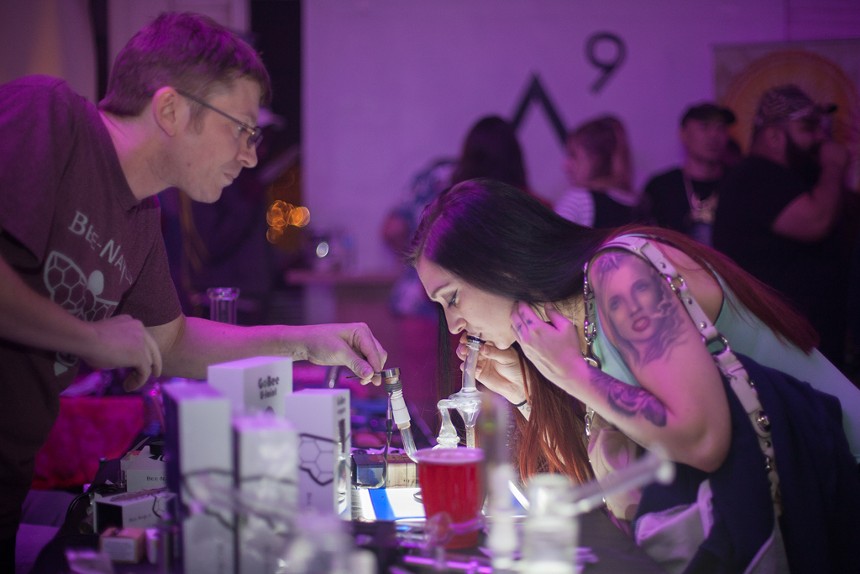
Tetra Lounge operated for nearly four years as a private cannabis club, but the owner wants a permit so the lounge can open to the public.
Jacqueline Collins
The RiNo Art District neighborhood organization will pay to put in sidewalks on Tetra's block as part of a neighborhood-wide installment plant, Benjamin says. He received a $50,000 grant from the state last year as part of a social equity initiative in the cannabis industry and spent that money on building and mechanical plans to meet Community Planning & Development requests, and still has to finish renovating bathrooms to comply with the Americans With Disabilities Act and add new entrances and exits to accommodate high outdoor occupation numbers; neither of those required building updates were shared with him until after the ribbon-cutting ceremony, he adds.
"When you submit for a license, they look at your financials. They know I don't make money like that. I don't know where they think I'm getting my money from," Benjamin says. "I'd like a legacy or temporary period to pay for this ventilation and these adjustments to be made, because there's no way I can get the requirements met financially."
If he can't operate as a licensed business, Benjamin jokes that he may host "non-consumption events, just like the rally" at Civic Center Park.
Meanwhile, another 4/20 will come and go, and Tetra is still not open.

